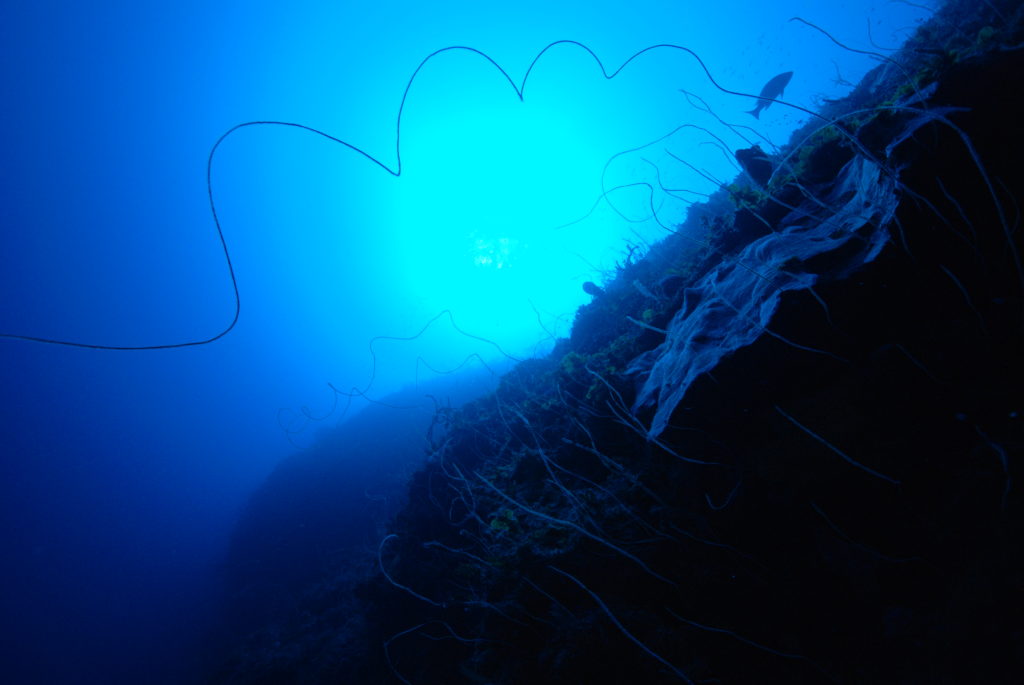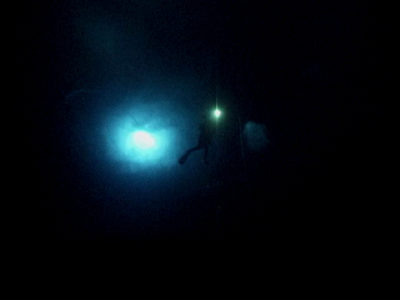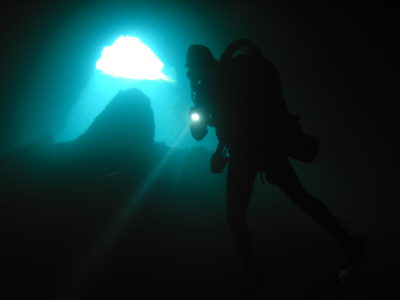Science Extreme | a beginning
In the early 2000’s, Michael Lombardi participated in three projects that took science to novel and extreme [at the time] underwater habitats. Realizing that limitations in scientific diving techniques created a bottleneck to more thorough investigations, Ocean Opportunity was formed to explore and catalyze future opportunities.

Mixed-gas Diving for Science
Our first exposure to the deep mesophotic coral reef ecosystem (MCE) was in 2002 during what was among the first uses of mixed-gas technical diving occurring within NOAA’s Undersea Research Program. The project supported preliminary mesophotic investigations of Dr. Michael Lesser of the University of New Hampshire.
Along the fore reef in the Exumas, Bahamas, in just 8 short minutes at a depth of 300 fsw (90 msw), a dozen new species of marine sponge were discovered. According to the University of Mississippi, more than half of these revealed bio-activities of interest in the search for cures for cancer, HIV, diabetes, and other human disease. This pivotally inspirational moment catalyzed an ongoing quest, for “the 9th minute”, which remains a priority.

Antarctica | Expedition K068
In 2002, we supported Expedition Antarctica K068, a cooperative research project between researchers at the University of New Hampshire and the University of Otago. The project investigated the effects of ultraviolet radiation on marine life below the Antarctic sea ice. Dives beneath the annual sea ice were required to deploy instrument sand collect samples.
Realizing the limitations of working in an overhead and freezing environment contributed to steering us towards developing new technology and techniques for greater human efficiency while working underwater.

Chemical Ecology of Marine Caves
From 2003-2005, we provided cave diving support at several locations in the Exumas, Bahamas for Dr. Marc Slattery of the University of Mississippi. Numerous new sponge species were discovered which revealed potential in the discovery of new natural products. This prompted our keen interest in natural products discovery, and emerging ventures to capitalize on the value of biodiversity.
The blue holes have been the subject of Bahamian folklore and scientific intrigue. They remain largely unexplored from a scientific standpoint and are quite likely home to countless important breakthrough discoveries. These cave systems, and their treasure trove of discoveries, are also under threat of local developments and growing human population in these remote areas. Conservation of the Bahamian blue holes is critical.
